Idyll is a small social world designed around kinder forms of online conversation. That description alone couldn’t come at a more meaningful time.
I’ve been eagerly watching the development of it over Twitter, and have been looking forward to writing about it when it releases.
I think it is a profound thing to put into the world in the shadow of “losing” Twitter… with friend groups scurrying to other social media spaces, and overall how things like this tiny game-thing contrast against the more popular online social spaces that we must inhabit.
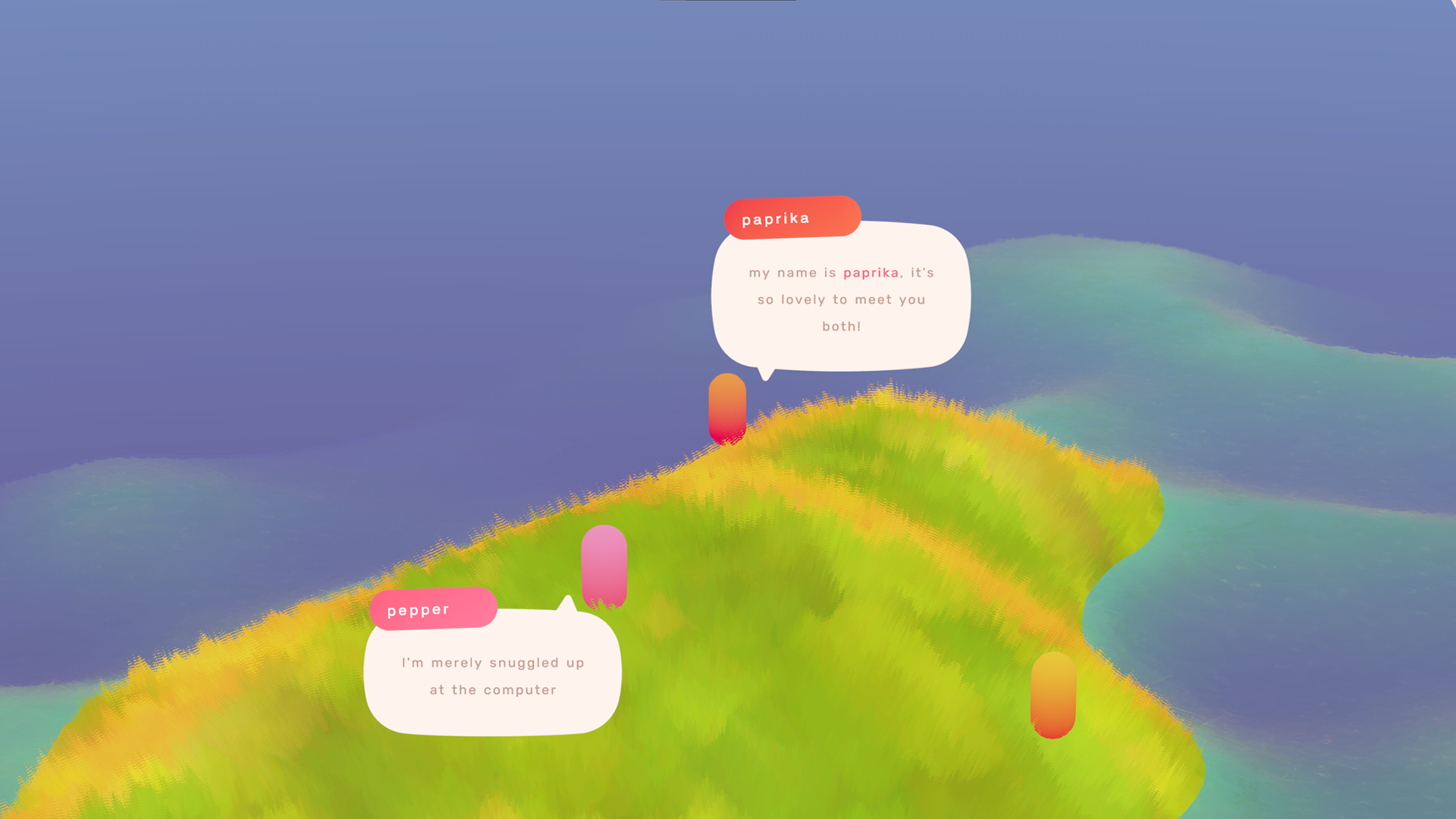
I think it goes without saying that each social media space we are in is designed to encourage a certain engagement. As game designers we should become more aware of that, and the way it has affected our own past interactions.
We know that we can design games to be addictive, aggressive, frustrating… to encourage all sorts of different emotionally charged interaction… but we seem unable to recognize this in our own social media spaces.
Why not question how they are designed and what they encourage? Maybe their toxicity should not be viewed as a necessary evil? Maybe our reliance on them could be broken if we believed we are capable of better?
What I love the most about the indie game community is its willingness to explore newer concepts.
By now there are so many examples of kind online worlds.
Sky by That Game Company
“Create enriching memories as you solve mysteries, make friends, and help others along the way.”
That Game Company is best known for experiences like Journey, or more recently Sky.
Both offer a glimpse into spaces that are designed to foster beautiful interaction and a type of community.
It almost seems silly to bring these up when contrasted against spaces like Twitter, but maybe we should. Maybe the surrounding intentions of the online world that we professionally rely on shouldn’t be so invisible to us. Maybe these extreme cases can encourage at least a belief in something better.
To illustrate: the infamous Coffee Tweet that inspired an unrelenting mob of harassment for reasons ranging from classism, able-ism, and whatever other rhetoric that could be used to vilify someone drinking coffee with a loved one.
I’m sure I’m not the only one that has been thinking about the game industry’s dependence on Twitter, and how that may have shaped the way we relate to each other… for better or worst.
These spaces that we so desperately need to be part of to market our games, feel a sense of belonging, or not miss out on the latest “discourse”… and how invisible yet pervasive algorithms, constantly shifting to optimize engagement in ways that seem to favor outrage to drive interaction, silently affect how we relate to one another.
We will publicly drag people, or dunk on people, that often don’t seem to deserve it. I sometimes wonder how I would relate to peers that were part of what felt like a harassment mob, directed at what I was going through… It nearly killed me. I don’t know how I would react if I ever met them in person. It’s not only hostile player bases, or the alt-right, that mainstream platforms empower. Sometimes the social media boogeyman is peers.
If I base my experience of “being in games” on social media alone, I would assume that I am not welcome here.
It all seems engineered in a way to encourage cynicism… especially Twitter discourse… it sometimes takes me back to being a teenager in the early 2000’s when any kindness was brushed off with a scoff and a “that’s gay” comment.
I’m not the only one that has been dunked on, harassed, or ground down, by existing in these public online spaces while peers (like silent passerbys) just watched what was happening… there’s that unspoken rule that these platforms reward awful behavior, or inevitably reward negativity more than kindness.
Participation, even in the most well meaning ways, becomes a game for attention.
For being game designers, it sometimes feels like our reliance on social media makes us blind to how it is designed.
Can we dream of better? What would that look like?
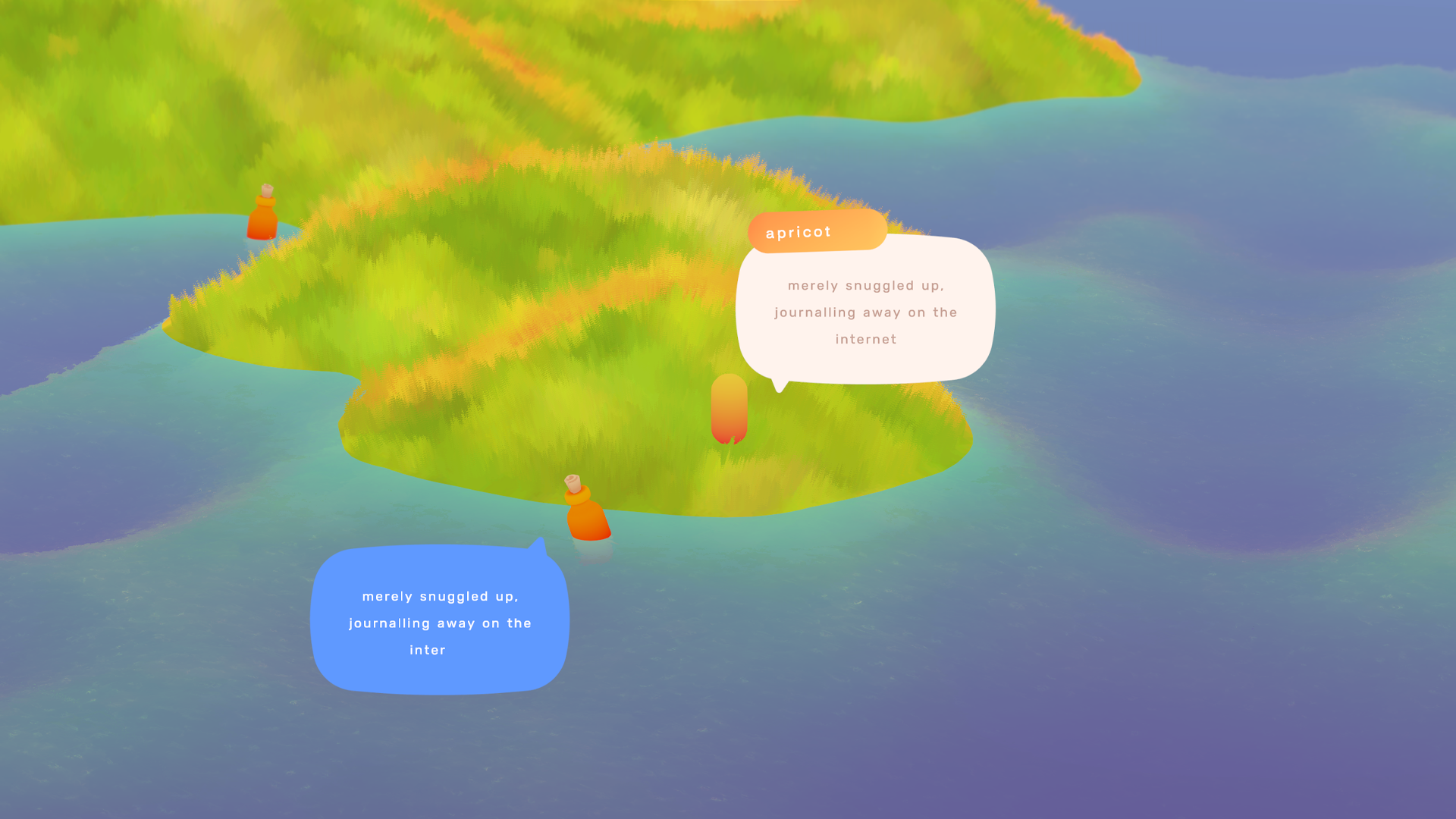
Idyll by Demi
“Best enjoyed after a long day away, Idyll is a small social world designed around kinder forms of online conversation and connection. Wander around a gentle pastoral island, strike up small conversations with other passing players, and even toss out small letters into the wide open blue oceans of the internet.”
I remember Demi announcing working on Idyll, and then reading the philosophical musings that went into it. The way Twitter’s failings prompted an exploration into something better.
I think Idyll is a beautiful little thing to examine under this lens.
Idyll is described as a small social world designed around kinder forms of online conversation and connection.
It is stylized as a beautiful gentle space to wander through, and chat in. Visitors can also leave behind small letters for others to find.
It is something of a poetic internet chatroom.
Historically, what an online social space is has come and gone through many iterations. Early internet chatrooms were often stylized as spaces. We had virtual worlds for a long time… there is a history of aesthetic takes on what these spaces could be, what they should be, and what types of communities form based on what they encourage or allow.
Idyll is something beautiful and gentle.
I would contend that, if it had the same team that a mainstream social media platform had to polish it, refine it, hire experts in human behavior and interaction so that it can be optimized to encourage engagement, maybe it would be a big deal too… maybe it’s a good thing that it doesn’t.
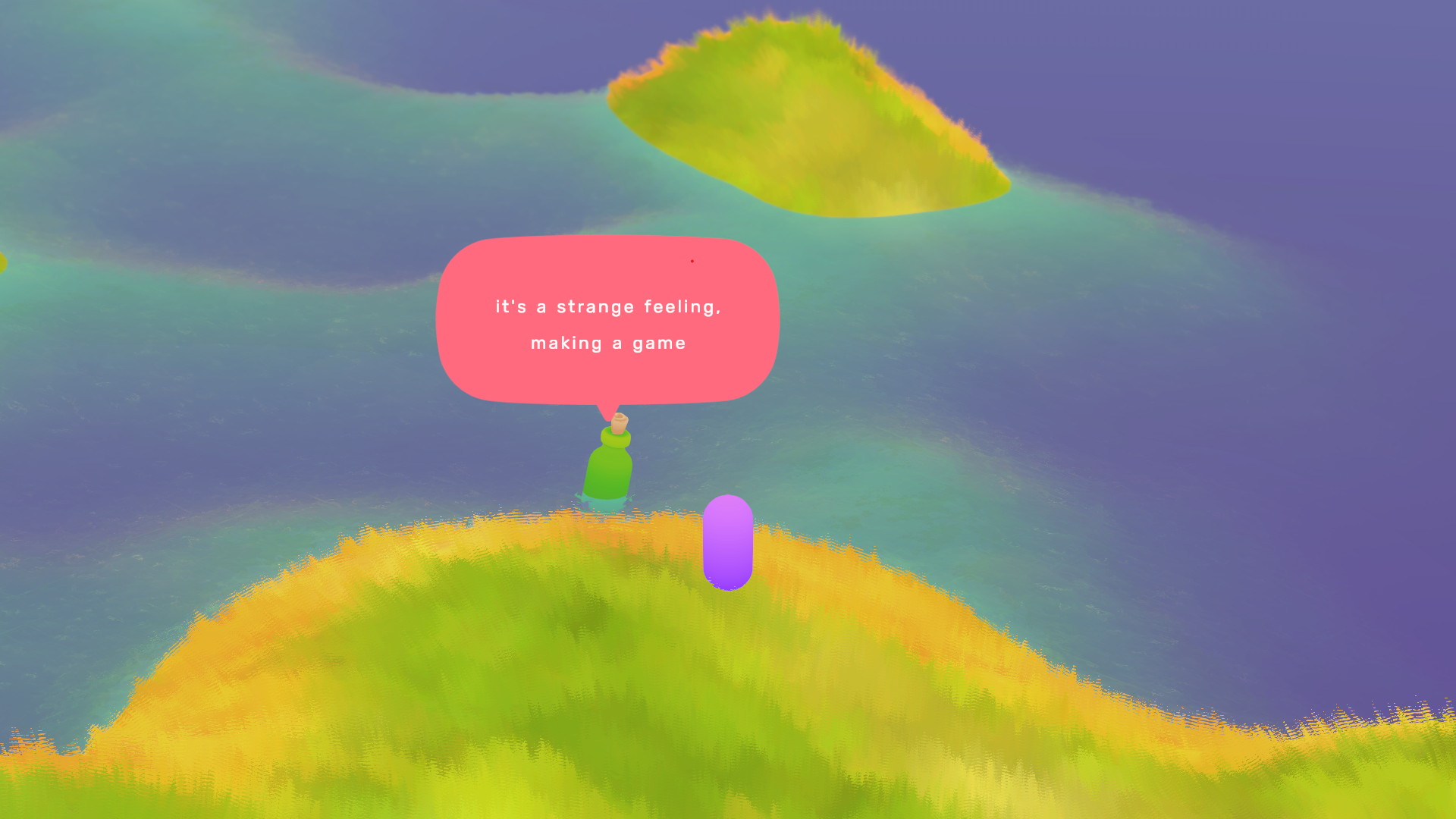
With the way Twitter’s dominance as “the platform” for the game industry to be on has largely blown up after Musk’s takeover, I wonder how different our professional relationships might be if we chose a kinder platform.
I don’t think you can avoid online fights, especially when being in a space like the game industry which is so haunted by abusers, but I know that it is easy for reactionary tendencies to become the norm in certain environments. I feel this way about places like Twitter, where outrage is a reward because attention is a sort of currency.
Participation has been a necessary evil, but does it have to be this evil to be useful?
Would an alternate reality where we market our games on Second Life, because in this weird alternative universe THAT is the one that ended up sticking, be kinder? Would it end up with the same problems because capitalism demands maximizing engagement and the best path to engagement is outrage? Is this all inevitable?
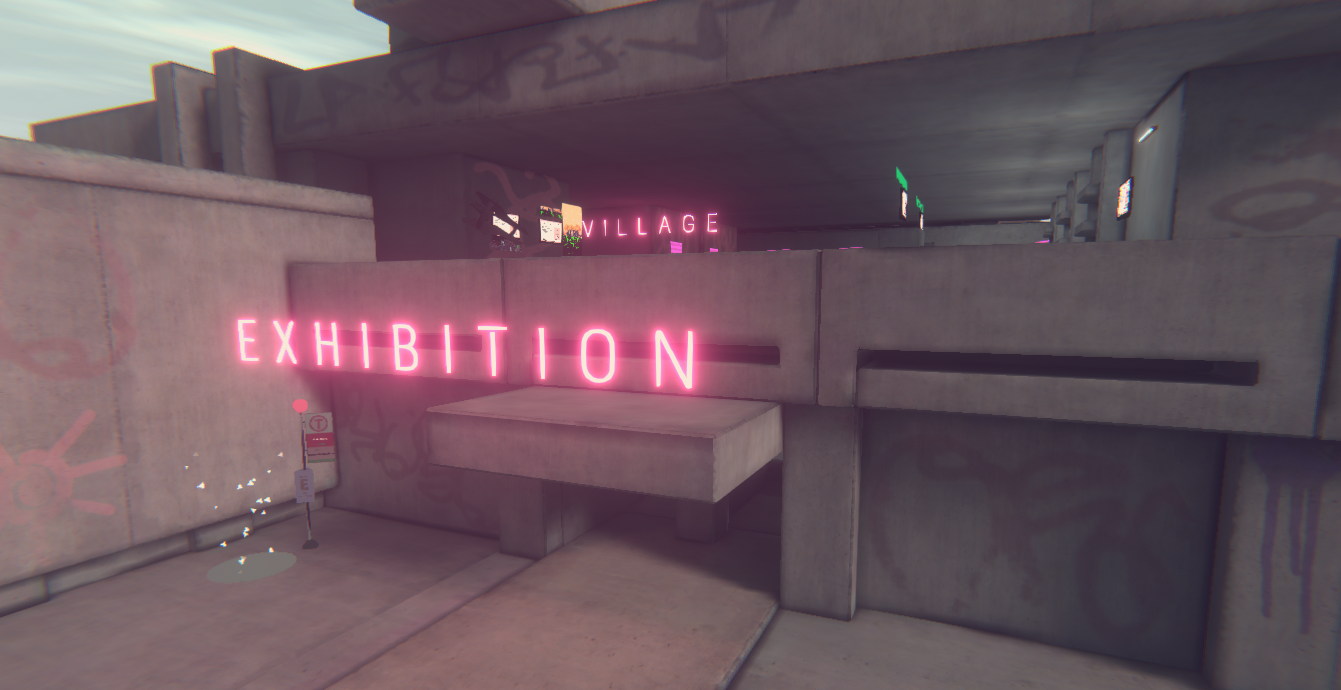
A MAZE. / SPACE
“The A MAZE. / SPACE is a 3D Multiplayer Culture Experience, where the visitors can interact with games, digital art, and other adventurous media. This space invites you to a constantly fresh curated program of live-streamed talks, music performances, games, and art exhibitions in collaboration with art institutions, festivals, thinkers, and curators.”
When the global pandemic first reared its head many game events tried to go entirely virtual in order to survive, and it has been interesting to watch the various takes on what a virtual event is.
It is equally as interesting to be “losing Twitter” (seeing the indie game community fragment between Mastodon, Tumblr, or weirder choices like HIVE…) just after the way we connect in-person has already been “broken” by the pandemic.
I was encouraged by the way events like A MAZE (the experimental games festival) approached an online event.
A MAZE created an actual virtual space that festival goers could play around in. It was this silly surreal place that encouraged equally as silly behavior.
The year that I was invited to be a judge I watched people running around this virtual world, chatting, and generally goofing around in the place… while the event also had a broadcast that it projected on this giant screen in the world.
Virtual festival goers all gathered in the room to watch, technical failings and glitches made it all the more fun.
It was a beautiful thing to see.
My experience of being “social” during the pandemic is dotted with silly little instances where people invited me to some virtual world and we would walk around chatting, pretending to be close.
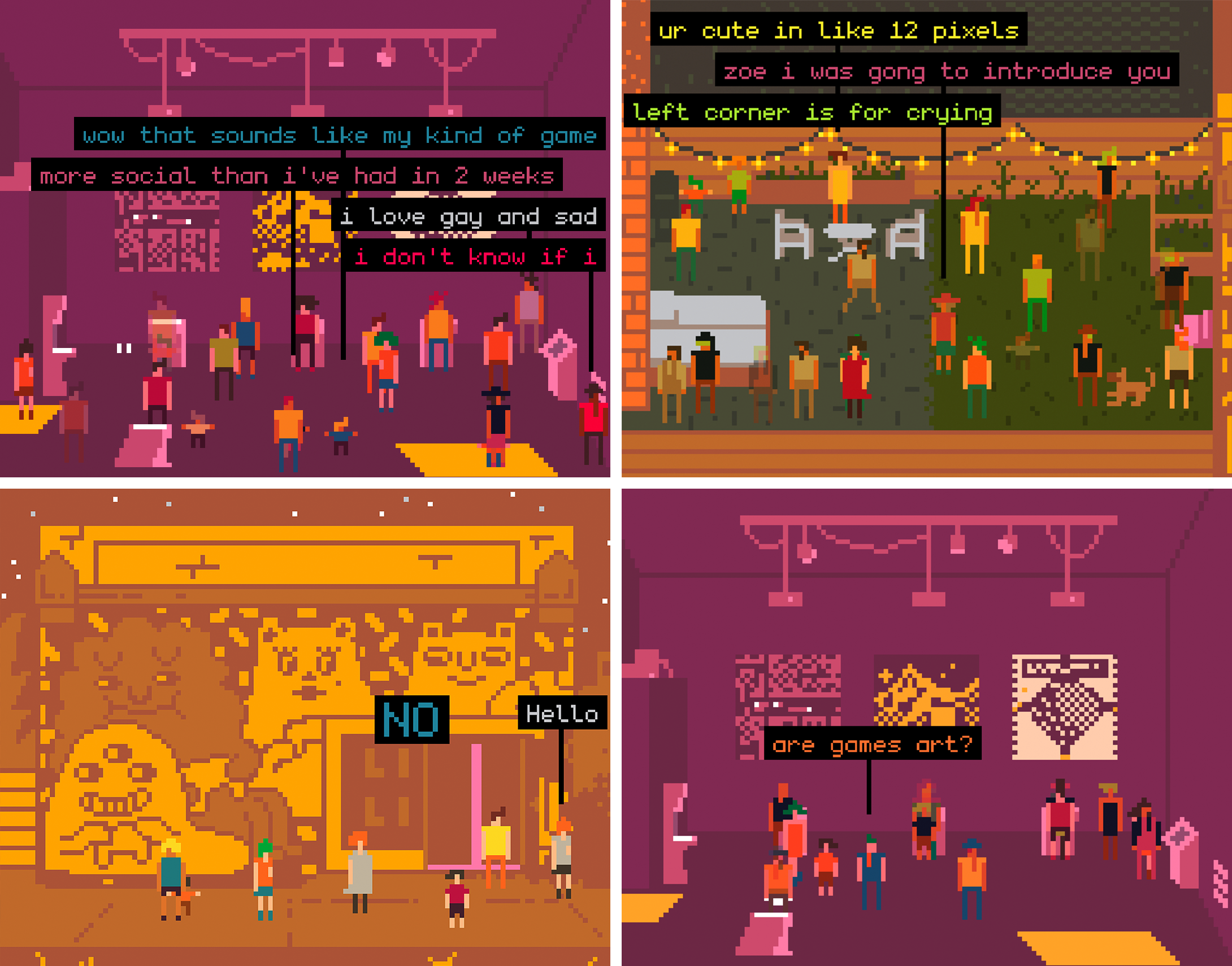
Like Like composite screenshot via Like Like.org
One year Like Like ran a Massive Multiplayer Online World powered by showcasing Bitsy games. This one is my favorite because Bitsy is already so endearing.
It was a positive space, and just as fun to watch people talk about it afterward.
Edit: LIKELIKE’s online arcade was not powered by Bitsy but was powered by node.js. Pardon me, I remembered wrong, thank you for the correction. The source code is here.
(point remains tho that this was insanely cool)
In general Bitsy is an interesting choice for environments, and its success as something people choose to build narrative spaces in is equally as fascinating. It’s low-fi. It doesn’t boast next gen graphics… or really any sophistication whatsoever, but the things people build in it are often as elaborate as they are evocative.
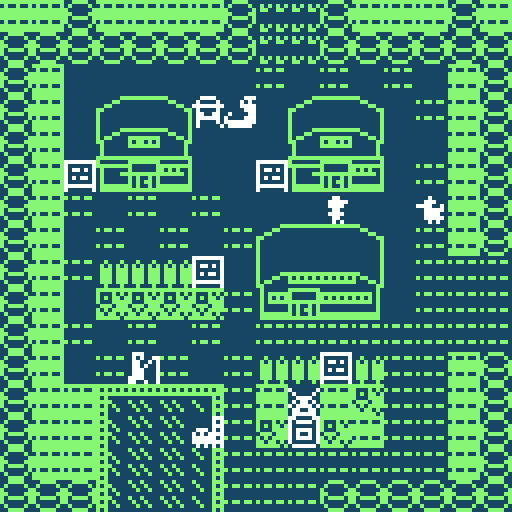
Pokemoncore by rrrrroseazerty
“Travel through Pallet Town and Viridian Town after an anti-capitalist and anti-speciesist revolution!”
The community surrounding Bitsy is kind and supportive. I have to wonder why? What prompts these spaces to be better? Why can’t that type of kindness carry over into mainstream places like Twitter? If we look at Bitsy we know that kindness online exists!
Why can “the little people” with their lack of resources manage to pull off kindness, but big corporations with their abundance of resources seem to always land on hellscape?
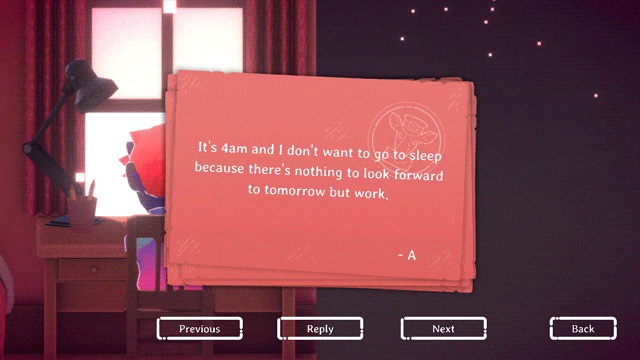
Kind Words by Popcannibal
“In Kind Words, players anonymously write out their concerns and sorrows by making short requests for letters.
Everyone can respond to requests with letters of comfort, sympathy or gentle advice. Kind Words is a positive context; a warm, cozy mood. A place to feel centered and focused on the opportunity presented:
Use your words to lift others and be lifted in return.”
The history of things like Virtual Worlds, and various online communities that have come and gone, is a long one by now. The popular social media platforms of recent are more or less of a blip.
I don’t think Twitter will be as remembered as much as MySpace. I question if Twitter would even make it into our creative nostalgia.
Would we rather forget Twitter?
The reality of what a social platform was, and the actual effect that it had on people, only seems to really manifest once it’s gone and we explore that nostalgia through our fiction.
It’s in how we remember it in our art that defines what it really was to us.
Charity by Bagenzo
“The fall semester at UofX, 2003.
Two graduate students gather to speak with an angel girl.
Meanwhile, the ties that bind three women tighten and twist.
Only files remain. Trace your fingers around the circle carefully.”
Something I played recently that I think beautifully captures how I feel about all this is the visual novel Charity. It’s absolutely beautiful, profound, and a memory about interactions.
In Charity you are asked to be something of a witness to conversations between people, musings, and exploring a record left behind.
You dig through chatlogs, slowly understanding the context of what you are reading. It’s almost like looking at a shadow, but in a nostalgic computer sense.
You must revisit these logs, recordings, or other icons symbolizing a record, to further progress through a story that you piece together entirely by being a good listener. As you interact with things, more is unlocked…
Everything about it, including the way it presents itself as some old-school UI, is a vague memory… It’s cryptic because computers are cryptic.
It is an interface that you are not familiar with, but feels familiar. As you click on things to see what might do what, you slowly understand the interactive language that it is inviting you to participate in.
The writing in it is metaphoric, relatable and beautiful.
Despite what might seem very random, it is a pleasant thing to use. You can forward through conversations, or skip parts, and even control the volume of the sound… It’s usable. You just have to click around and learn what does what, which I love about it.
The way Charity presents itself doesn’t feel patronizing to use, nor does it hold your hand. It assumes a level of curiosity from the player, and this makes it a beautiful experience.
Charity is about online interaction, but it is also relevant to this post because it’s made in a non-standard tool: Spectacles Engine by Sean… a tool by a small developer, not by a large corporation.
To me it’s like seeing the promise of an alternative universe where we use the offerings of others (not large corporations) to build beautiful things and spaces that are all different, kind, and meaningful… Just in the way these alternative games are built, with small alternative tools, it’s all part of something else that demonstrates a type of hope, in contrast to the cynicism that so easily takes hold when you rely on corporations.
The cynicism in our spaces, surrounding what we rely on, the tools we use, the way the industry is structured… can sometimes feel crushing.
Between the cracks you know there are things that are better. Communities presenting functional alternatives.
We are better, and we should believe that better is possible. “Better” already exists, except it’s not getting the visibility it deserves.
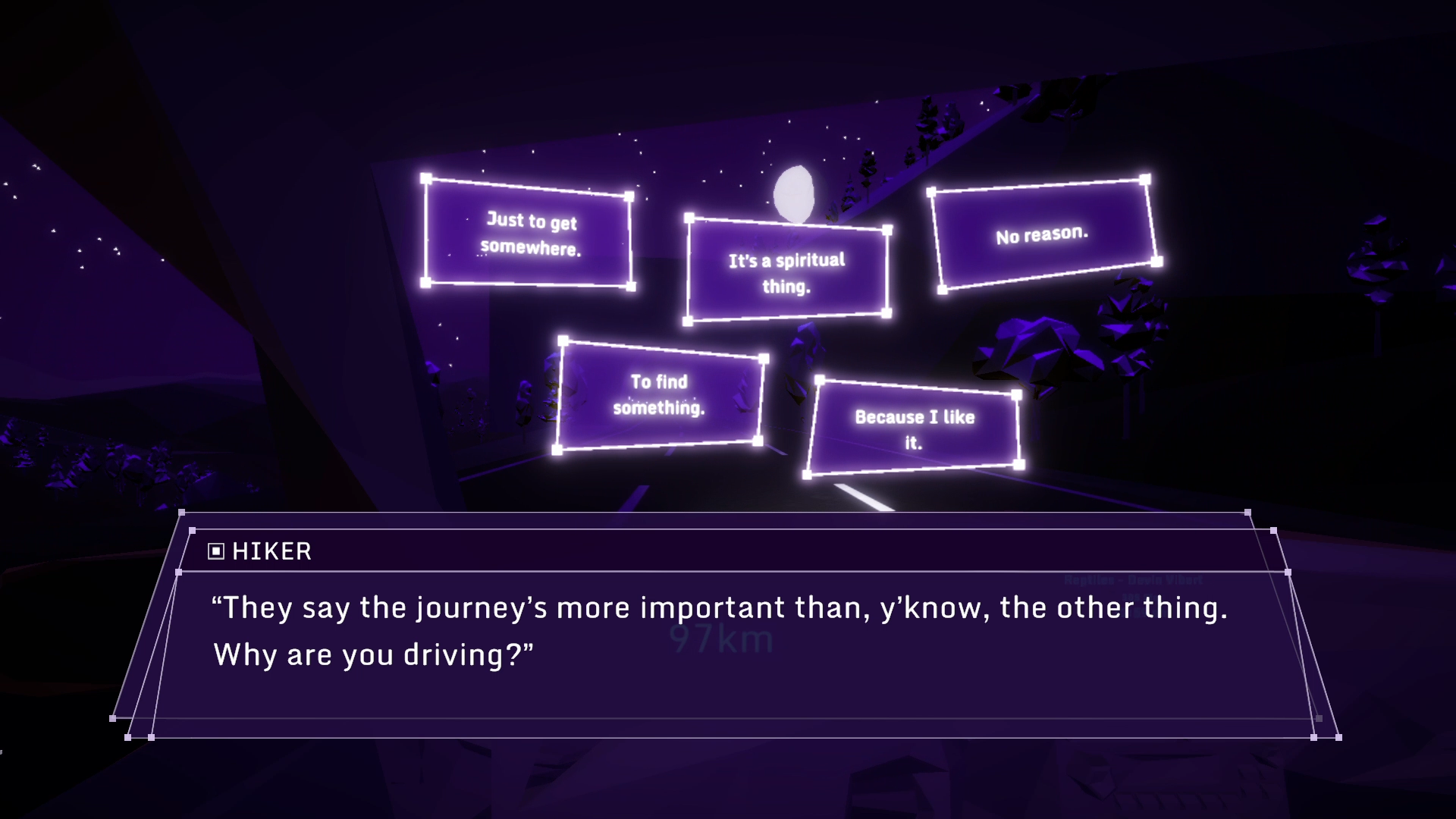
Glitch Hikers The Spaces Between
“In 2014 a short experimental altgame, Glitchhikers: First Drive, was released here on itch.io, becoming a surprise cult-classic and critical hit.”
I don’t want this post to get too long, but there’s just one last story I would like to share because it feels good to constructively let go of these experiences…
When “Everything is going to be OK” was a finalist at IGF I gave the free expo passes to friends (and friend’s friends), some of which didn’t even work in games but were curious to see GDC.
Then, attending GDC, I was on the show floor… one of them was venting at me about how rude people were.
She was in a conversation with someone, they asked what she does, as soon as she told them that she didn’t work in games the person she was talking to would give a cold shoulder or just walk away. This happened more than once.
Another person (friend’s friend) that I gave a pass to was experiencing this too and decided just to bullshit and make up very important game stuff she was interested in being (fake-it-until-you-make-it style), and the way people related to her completely changed. The assumption of importance suddenly made it a welcoming experience.
This sort of behavior, and behavior change, has happened often to friends that I invited to these game expos. It’s not uncommon!
I also learned a lot about people I thought where cool just based on how I hear that they treat others that they can’t “benefit from”.
Disclaimer: I understand that people go to GDC “to network” but there is never an excuse for being blatantly rude. This happened on the “show floor”, not the networking events.
I share this because I think there’s this huge gap in the indie game space vs. the AAA game space. It should be welcoming to people who aren’t even “in games”, but it is not. It’s still too opportunistic.
Games need to become accessible to non-game people for them to reach a better cultural relevance.
I can’t imagine going to a comic book convention, a zine fest, or even an indie movie festival, and being treated with rudeness if the person I’m talking to finds out I actually “don’t work in” comics, zines, or movies.
This doesn’t really happen anywhere else. At least not commonly. It’s like we have a giant unwelcoming wall to “outsiders”… people who could actually be welcomed as fans of the indie game medium. There’s a weird elitist culture war type divide between players and people that make games, and it seems like it would be great to start challenging that because we deserve kinder spaces.
It’s possible to cultivate them. We are all responsible for that.
Food for thought…
Land of Forgotten Souls by Joey Schutz
Update: A couple people recommended Land of Forgotten Souls as an example, and it is beautiful so it needs to be here.